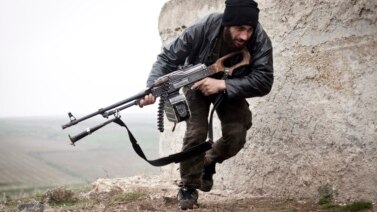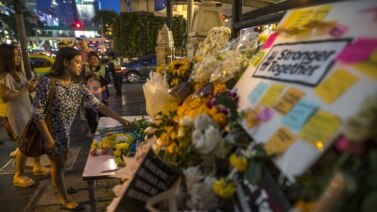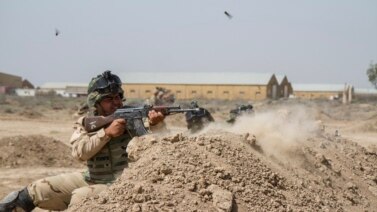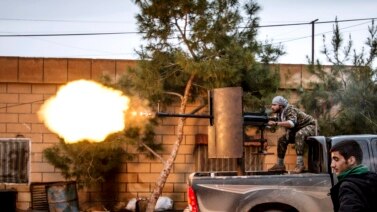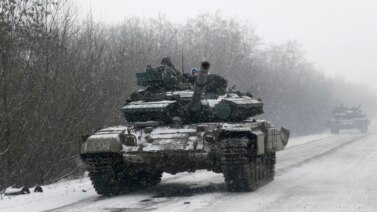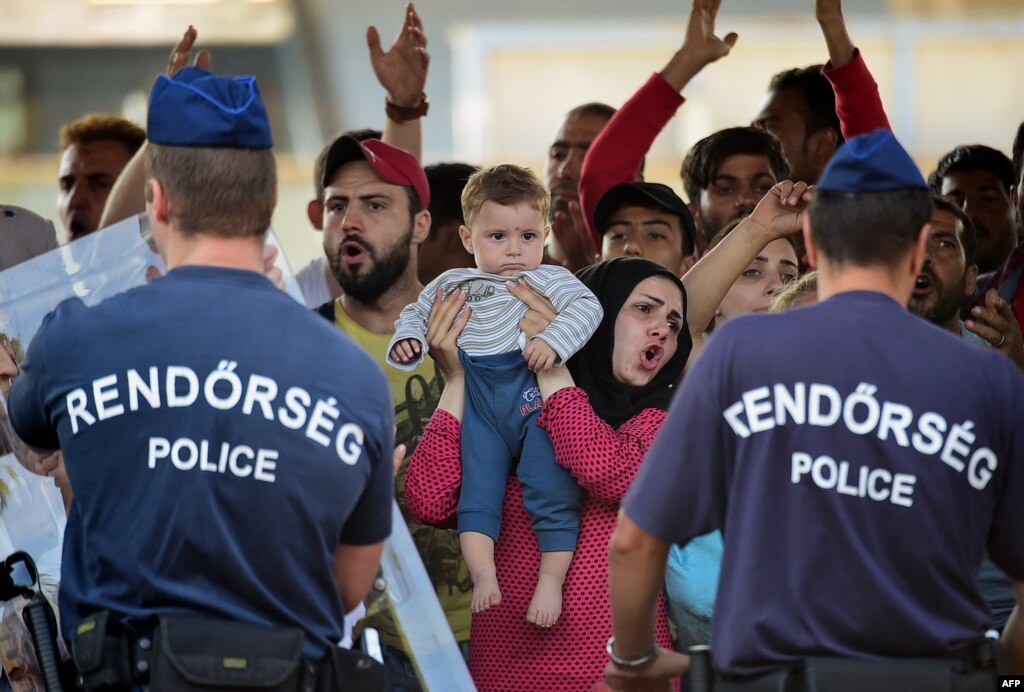
More than 2,000 people have been unable to travel from the main international train station in Budapest, Hungary. Officials stopped allowing migrants to travel to Germany and Austria without a visa from the European Union. The migrants had been waiting near the station for weeks. Many have been seeking to travel on to Germany and Austria.
At first, officials said they would permit the migrants to leave the station without checking for visas, but later changed their decision.
The officials said they are trying to follow European Union rules. E.U. rules say migrants must seek asylum in the first country they enter.
Hungary is a main migrant entry point to the European Union with more than 156,000 arriving this year.
Iran nuclear deal gets important support
A U.S. senator has announced her support for the international agreement on Iran's nuclear program. Senator Barbara Mikulski of Maryland is the 34th member of the Senate to commit to a vote supporting the deal. The Senator said that deal was not perfect, but was the best available plan to keep Iran from getting a nuclear bomb.
Also Wednesday, U.S. Secretary of State John Kerry spoke in the city of Philadelphia in support of the international agreement known as the Joint Comprehensive Plan of Action.
Congress is expected to debate the agreement next week during the closing days of a 60-day review period.
Roman Catholic leader calls for abortion pardons
The leader of the Roman Catholic Church has called on priests to forgive what the church considers a serious sin, abortion. In a letter published Tuesday Pope Francis said he is “well aware of the pressure” some women face. Pope Francis is calling for priests to absolve women of the “sin of abortion” in the coming year. The move breaks with the traditional teachings of the Roman Catholic Church.
North Korea denies apology for landmine incident
North Korea’s National Defense Commission has denied apologizing for a landmine explosion that injured two South Koreans. In a deal reached last week, North Korea expressed "regret" over the explosion. The agreement cooled hostilities between the two neighbors.
South Korea has said it views the statement as evidence it finally persuaded North Korea to take responsibility for the early August incident. But in a statement Wednesday, the North Korean commission accused the South of misinterpreting the statement of regret.
Sierra Leone holds 50 on Ebola fears
Sierra Leone has quarantined 50 people in the northern area of Kambia. A 76-year-old woman in the area died of Ebola days ago. The country had just released its last known Ebola patient. A person working in the government told VOA that no other people have shown symptoms of the virus.
War crimes trial begins for Congolese rebel leader
A former Congolese rebel leader has pleaded not guilty to charges of war crimes and crimes against humanity at the International Criminal Court in the Hague. Bosco Ntaganda said he was not guilty Wednesday on the first day of his trial.
Lawyers say the rebel leader is responsible for crimes committed by his rebel group, the Union of Congolese Patriots.
He faces 13 counts of war crimes and five counts of crimes against humanity that took place in the eastern Democratic Republic of Congo in 2002 and 2003. The crimes include charges of murder, rape, sexual slavery, enlistment of child soldiers and displacing populations.
Words in the News
visa – n. an official mark on a passport allowing a person to enter or leave a country
quarantine – v. to keep a person away from others to prevent disease
absolve – v. (religious) to give forgiveness to someone for a sin
